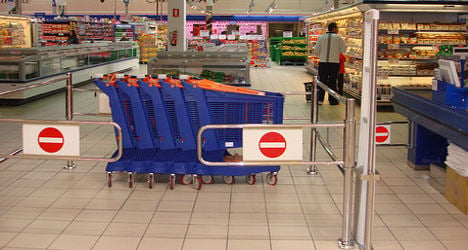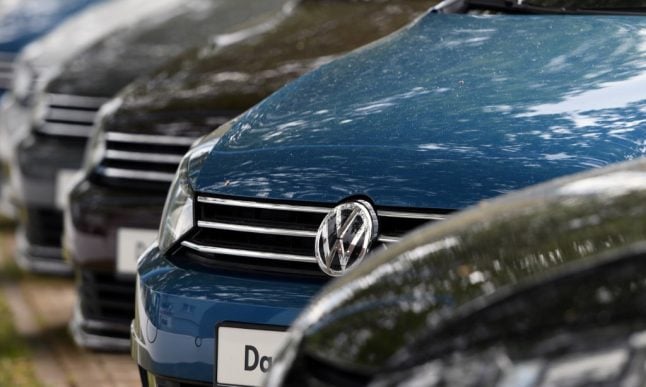Earlier this week the French organisation “60 million Consumers” kicked up a storm by claiming electronic cigarettes were “potentially carcinogenic” because of the vapour they use.
Now the group wants to raise awareness of the potential dangers of products most of us consume on a daily basis.
From Tuc biscuits, to Coca Cola and from toothpaste to chewing gum "60 million Consumers"has come up with a list of 100 supermarket items whose contents we should be aware of.
“These hazardous substances poison our daily lives,” claim the organisation in the September issue of its magazine.
Among the 100 products the magazine claims contain toxic substances are Kellogg’s chocolate bars, Balsamic vinegar, Maggi soups Hollywood or Mentos chewing gum.
The rogue ingredients include the colouring E150D, sodium sulphite, azo dyes and BHA.
E150d was classified as “possibly carcinogenic” by the International Agency for Research on Cancer and since January 2012, California has tried to limit its use.
60 million Consumers notes that sodium sulphite is a preservative that can cause headaches, itching or difficulty breathing and azo dyes, may give a bright colouring to food, but they also cause allergies and can be carcinogenic.
“Many confectionary brands have chosen to substitute natural dyes,” claims the magazine.
60 million Consumers also highlighted the dangers of certain beauty products including baby wipes, tooth paste, foundation and moisturizer.
The issue with these products is that they contain parabens, preservatives that are believed to harm the hormonal system and Triclosan, an antibacterial agent that if used frequently can lead to resistance to anti-biotics.
It the same as “60 million Consumers” published their report in their magazine another French consumer group UFC-Que Choisir also produced a list of items we use in our daily lives that at potentially dangerous.
Among the items, found to present a risk to the public’s health were lap top covers, which contained “no less than four different substances that caused concern”.
The coating on several school back packs were found to contain a toxic plastic softener that is banned from any products designed for children.
Certain babies bibs were also found to contain a toxic flame retardant, which is now banned.
The problem for the public, the organisation says, is that the presence of these products are never mentioned by the manufacturers.



 Please whitelist us to continue reading.
Please whitelist us to continue reading.
Member comments